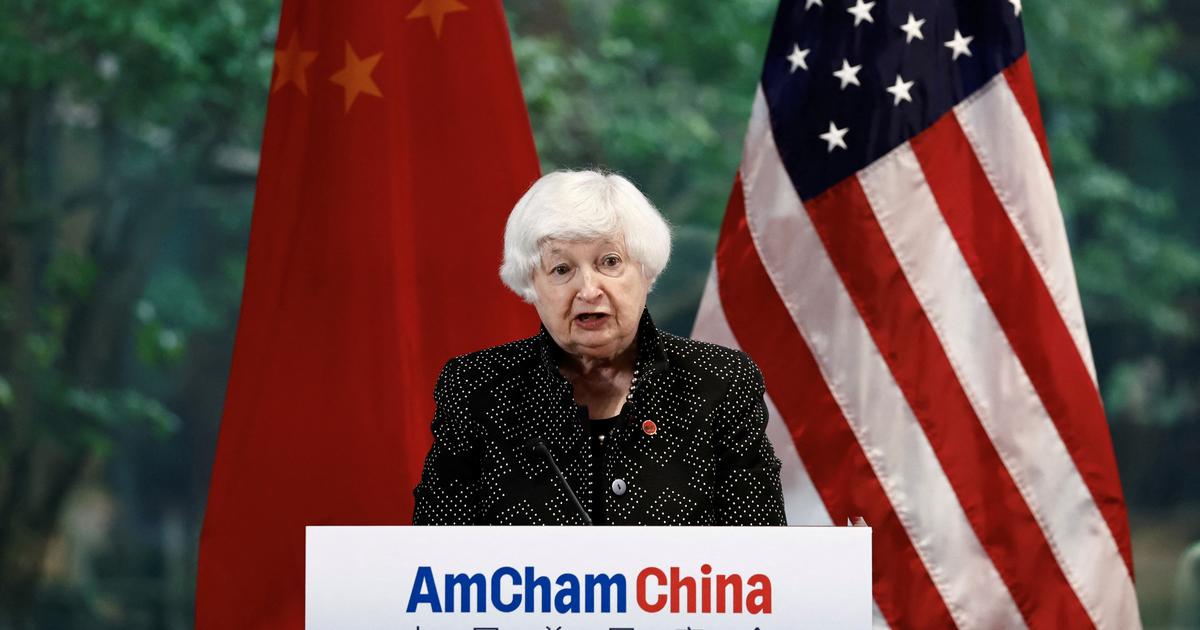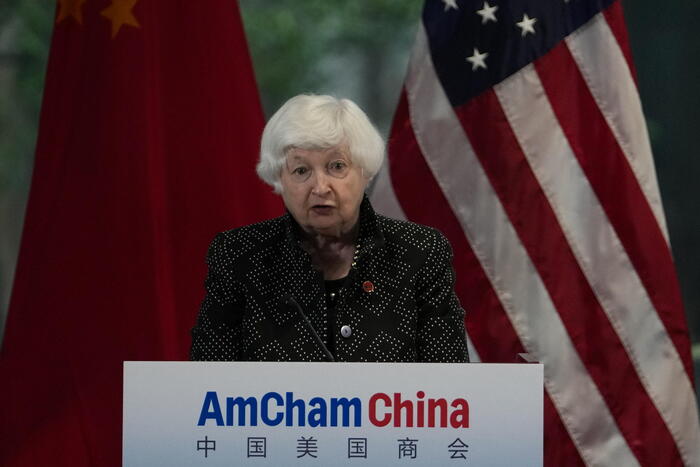House Speaker Kevin McCarthy addresses reporters on Capitol Hill.JIM LO SCALZO (EFE)
There is a little more time for negotiation. Until now, no one knew for sure when date X would be when the United States would run out of money to meet its payments if the debt ceiling is not raised. Treasury Secretary Janet Yellen had pointed to early June without specifying a date and noting that "potentially" there would be a risk on June 1, so that date had been somewhat marked. Now, Yellen has been more precise and there is more time for negotiation, at least until June 5.
Knowing how far-sighted Yellen is, one might expect that pointing out June 1 in a somewhat generic way was a way to urge the parties to sign an agreement. A new letter to Congress now leaves a little more time when entering a decisive phase of the negotiation. The parties have approached positions and the pact begins to take shape, although the figures have not been specified and there is resistance between the most extremist wings of the Republican and Democratic parties.
"Since January, I have underscored the risk that the Treasury would not be able to meet all of our obligations in early June if Congress did not raise or suspend the debt limit before that date," Yellen said in her new letter, addressed to House Speaker Kevin McCarthy and the rest of congressional leaders. "In my letters, I also indicated that I would continue to report to Congress as more information became available. Based on the most recent data available, we now estimate that the Treasury will not have sufficient resources to meet the government's obligations if Congress has not raised or suspended the debt limit by June 5."
Yellen confirms the government has the money to pay more than $130 billion in scheduled payments in the first two days of June, including payments to veterans and Social Security and Medicare beneficiaries. Those payments will leave the Treasury with an extremely low level of resources, Yellen explains.
"During the week of June 5, Treasury is expected to make payments and transfers of about $92 billion, including a regularly scheduled quarterly adjustment that would see an investment in Social Security and Medicare trust funds of about $000 billion. Therefore, our planned resources would be insufficient to meet all these obligations," he adds. June 36 is Monday and the secretary speaks first of that date and then of "the week of June 000", which seems to hypothetically leave room for some extra day. At the same time, once the agreement is reached, it is necessary to process it in Congress, which also takes a few days.
Damage to the economy
The Treasury secretary insists that waiting until the last minute to suspend or raise the debt limit can cause serious damage to business and consumer confidence, raise short-term borrowing costs for taxpayers and negatively affect the U.S. credit rating. "In fact, we have already seen Treasury borrowing costs rise substantially for securities maturing in early June," he says. The annualized yield on bills maturing in the first days of June had exceeded 7%. Now, those letters are safe and the problem is delayed a few days.
Failure to pay some obligations does not necessarily imply non-payment of the financial debt. To incur in default it would be necessary for the Treasury to default on any interest payment or fail to meet any maturity.
Yellen explains that on Thursday the Treasury used an additional extraordinary measure that it had already employed in several previous episodes of crisis over the debt limit: an exchange of approximately 2,000 million dollars of Treasury securities between the Retirement and Disability Fund of the Public Administration and the Federal Financing Bank. "Although this measure has not been used since 2015 due to its limited size, the extremely low level of the remaining resources requires that it exhaust all available extraordinary measures to avoid not being able to meet all of the Government's commitments," Yellen explains.
The International Monetary Fund (IMF) has called this Friday in Washington for an immediate solution to the problem of the debt ceiling and has demanded a permanent remedy so that it does not repeat itself repeatedly. After meeting with the Secretary of the Treasury, Janet Yellen, and with the chairman of the Federal Reserve, Jerome Powell, the managing director of the IMF, Kristalina Georgieva, has insisted on the need to find a solution in the press conference in which she has presented the conclusions on her annual analysis of the US economy.
"Reaching a good result is paramount from a global perspective. We think of U.S. Treasury debt as an anchor for the global financial system. And this anchor needs to be kept solid. So at a time of significant uncertainty, let's not add a self-inflicted wound to those already suffering from the global economy. There is some encouraging news that discussions are advancing. But the world is watching and the world is saying, 'Okay, we're going to shut this down. And please, can you come up with a different way of approaching this issue?" said Georgieva.
The agreement is taking shape. It would be about extending the debt ceiling for two years in exchange for imposing spending limits for the same period. That would cover what's left of Joe Biden's presidency. The spending limits would not affect military spending or veterans' payments and would focus on other programs, but they would not be as aggressive as those included in the first Republican proposal, passed as a bill in the House of Representatives. However, the numbers are undecided and the negotiations, which will continue over the weekend, may be derailed. Now there is just over a week to go.
Follow all the information of Economy and Business on Facebook and Twitter, or in our weekly newsletter

/cloudfront-eu-central-1.images.arcpublishing.com/prisa/7KAML25PHI5HTNYIOTM46VALDA.jpg)







